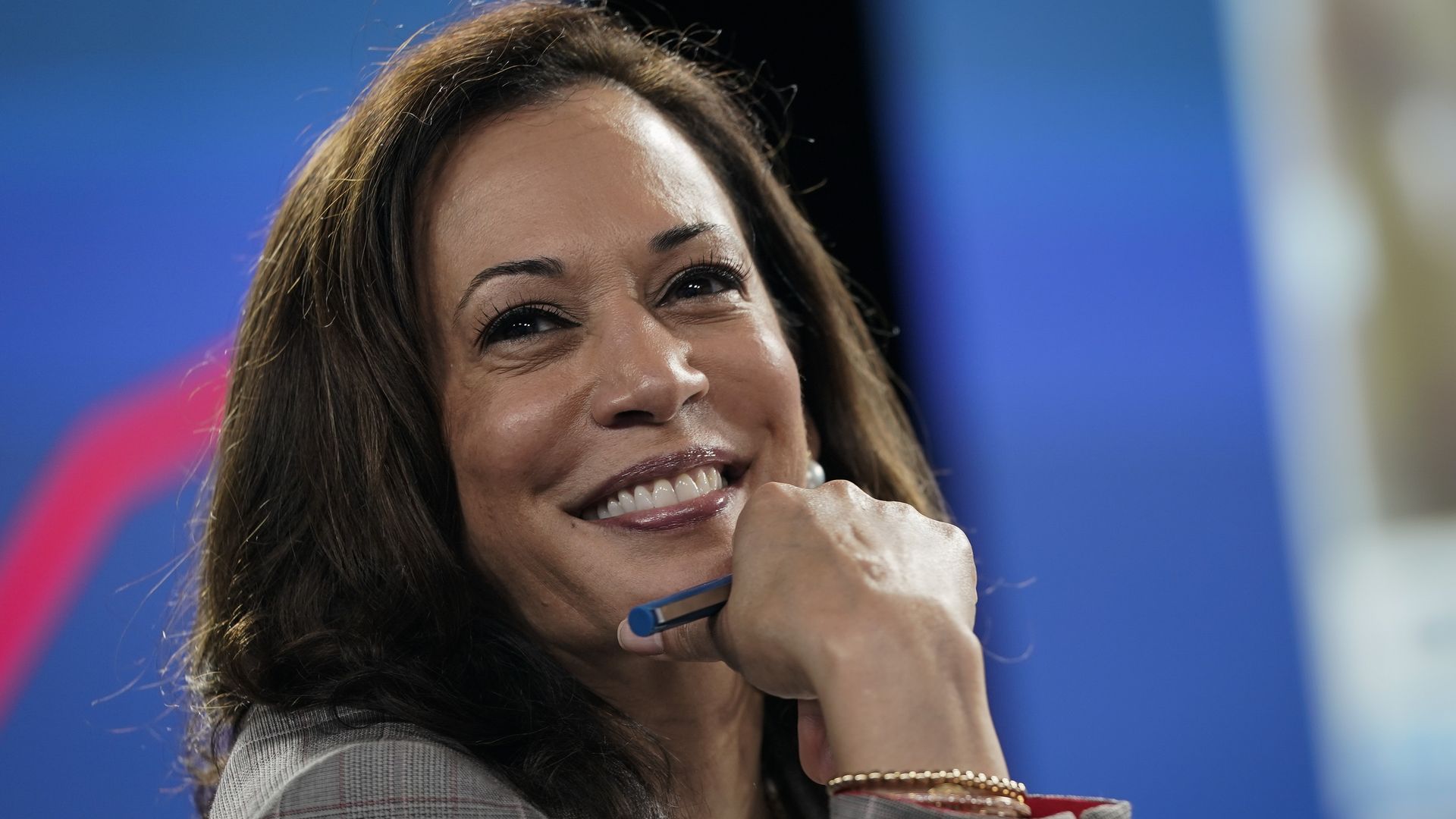Kamala Harris and the political rise of America's Indian community
Add Axios as your preferred source to
see more of our stories on Google.

Vice presidential hopeful Sen. Kamala Harris (D-Calif.) Photo: Drew Angerer/Getty Images
When Democrats next week formally nominate the daughter of an Indian immigrant to be vice president, it'll be perhaps the biggest leap yet in the Indian American community's rapid ascent into a powerful political force.
Why it matters: Indian Americans are one of the fastest-growing, wealthiest and most educated demographic groups in the U.S. Politicians work harder every year to woo them. And in Kamala Harris, they'll be represented in a major-party presidential campaign for the first time.
By the numbers: There are more than 4 million Indian Americans, and the population is growing quickly.
- In the battleground states of Florida, Michigan, North Carolina, Georgia and Texas, the number of eligible Asian American and Pacific Islander voters grew more than 117% between 2000 and 2018, to nearly 1.7 million.
- Indian Americans represent the largest share of Asian Americans in each of those states.
- Indian Americans are wealthier than Americans in general, according to Census Bureau data compiled by AAPI Data. Their median annual household income was about $139,000 in 2018, more than double the nationwide median.
- About half the 1.8 million U.S. foreign work visas issued between 2001 and 2015 went to Indians.
Both political parties have begun to take notice of this large and potentially powerful constituency.
- 99 Asian American candidates are running for national office this year, nearly double the 48 who ran in 2018, according to research by the nonprofit Asian Pacific American Institute for Congressional Studies.
President Trump has courted the community's vote. He launched a five-figure advertising campaign targeting Indian voters to coincide with his February rally, in India, to spotlight his relationship with the country's Hindu nationalist prime minister, Narendra Modi.
- Trump has found some support in the community "because of his economic agenda — especially the 2017 tax cuts — and his policies to crack down on illegal immigration," Politico's Anita Kumar wrote.
- Former Louisiana Gov. Bobby Jindal in 2016 was the first Indian American to run for president, and former South Carolina Gov. Nikki Haley has also been touted as a possible presidential contender in 2024.
Yes, but: For now, Democrats still hold the edge. And Harris may help them solidify it.
- Hillary Clinton won the Indian American vote by about 70 points in 2016, according to an exit poll by the Asian American Legal Defense and Education Fund.
What they're saying: ”Trump got a lot of younger Asian Americans out to vote in 2018 — most of them for the Democratic Party rather than the Republican Party — and you’re probably going to see similar dynamics this year," said Karthick Ramakrishnan, the founder of AAPI Data and a political science professor at the University of California, Riverside.
- "The Harris nomination will likely add some boost to those dynamics.”
